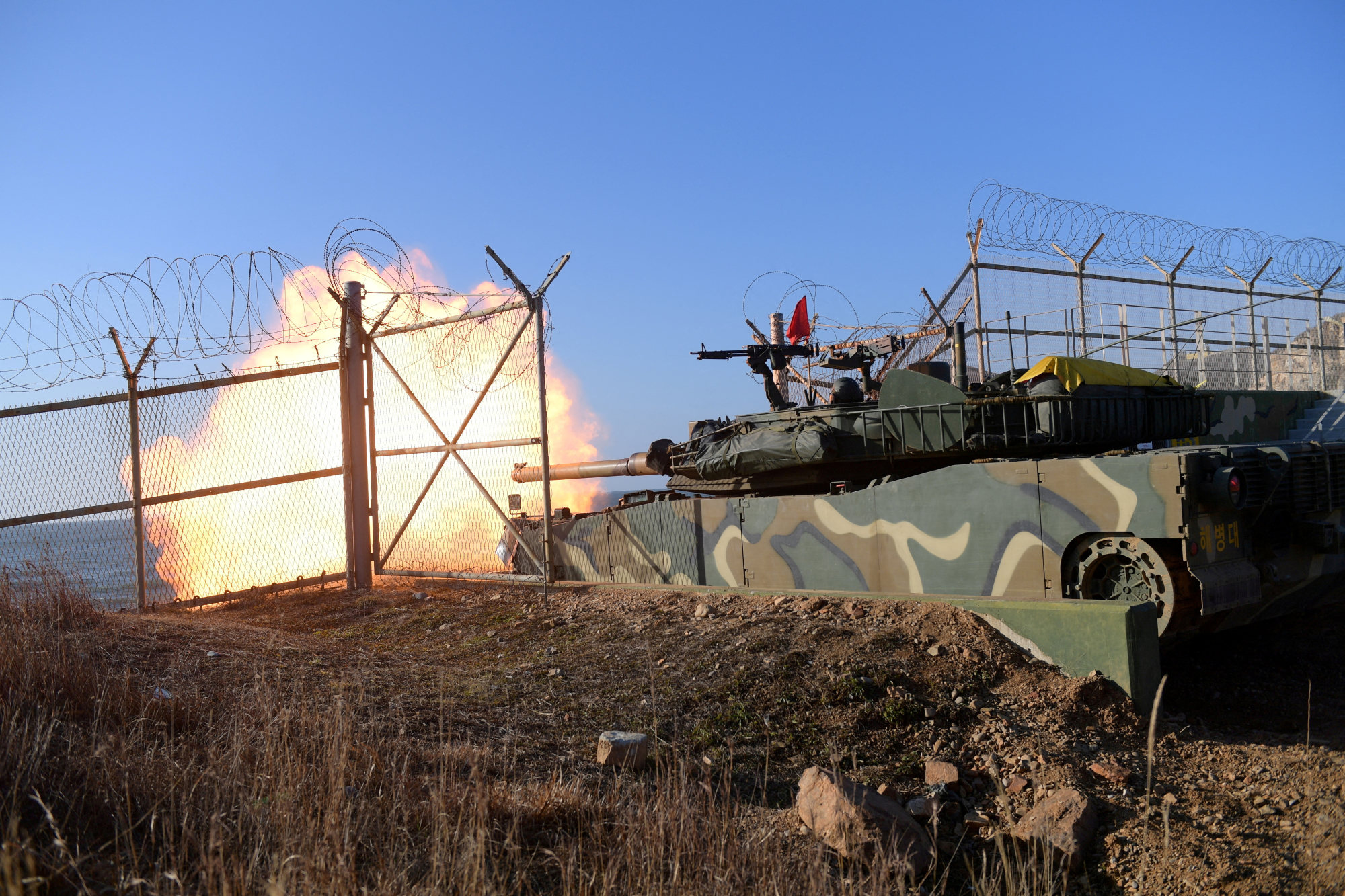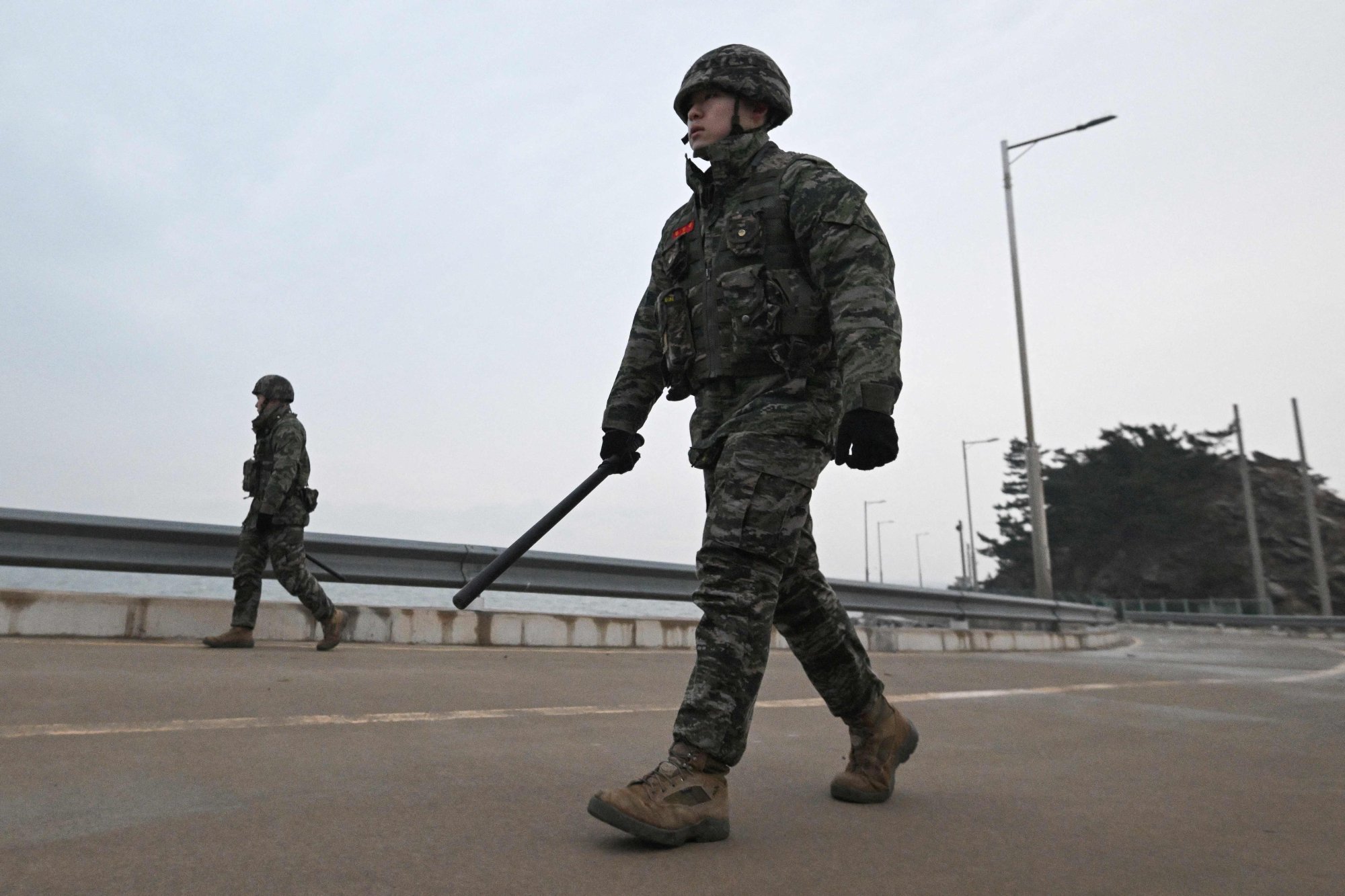Fear grips migrant workers on South Korea’s border island: ‘is there going to be a war?’
They had a rude awakening on Friday, however, when alerts sounded on their phones – indecipherable as they don’t read Korean – followed by the boom of artillery fire.

For residents on the island, the rising tensions bring back memories of 2010, when a North Korean bombardment killed two soldiers and two civilians there, and left an unconfirmed number of North Korean casualties after South Korea fired back.
That history was news to Mohamed and Dananjaya.
“I was panicked by the sound,” Mohamed, 25, said on Tuesday in his dormitory on the island. “Is there going to be a war? I came here for my family, my parents and siblings, but I am getting scared. I am worried that they worry about me.”
South Korea on alert for clashes, nuclear test as Kim threatens ‘major ripple’
South Korea on alert for clashes, nuclear test as Kim threatens ‘major ripple’
Mohamed, a former football player who left the sport for crab fishing to save for a house, says he is paid 2 million won (US$1,500) per month and remits most of it back home, except a little he keeps to buy snacks.
Until the crab season begins in March, he carries some frozen crab boxes around for delivery while eating fish potato rice for lunch at a company cafeteria.

He echoed the concern that any armed clashes might dash their Korean dreams.
The pair are among the roughly 10 per cent of the island’s residents who are migrant workers, a key workforce for the crab-fishing business, says their employer, Kim Jeoung-hee.
“Without those folks, nothing can work out,” he said. “Koreans are old here, so barely anyone is riding on ships. Without foreigners, we can’t keep up with our fisheries. I want them to like this place and settle in, but current [geopolitical] circumstances aren’t helping at all.”
Kim said while he was born and raised on the island and can hope that heightened tensions might simmer down eventually, migrant workers new to the island would understandably fear any potential conflict, going through evacuations and firing sounds surrounding them.
“My boss and his wife, they are treating us very well, and Korean people are nice,” Mohamed said. “Yeonpyeong island is beautiful with trees. Everything except the South Korea-North Korea situation.”

